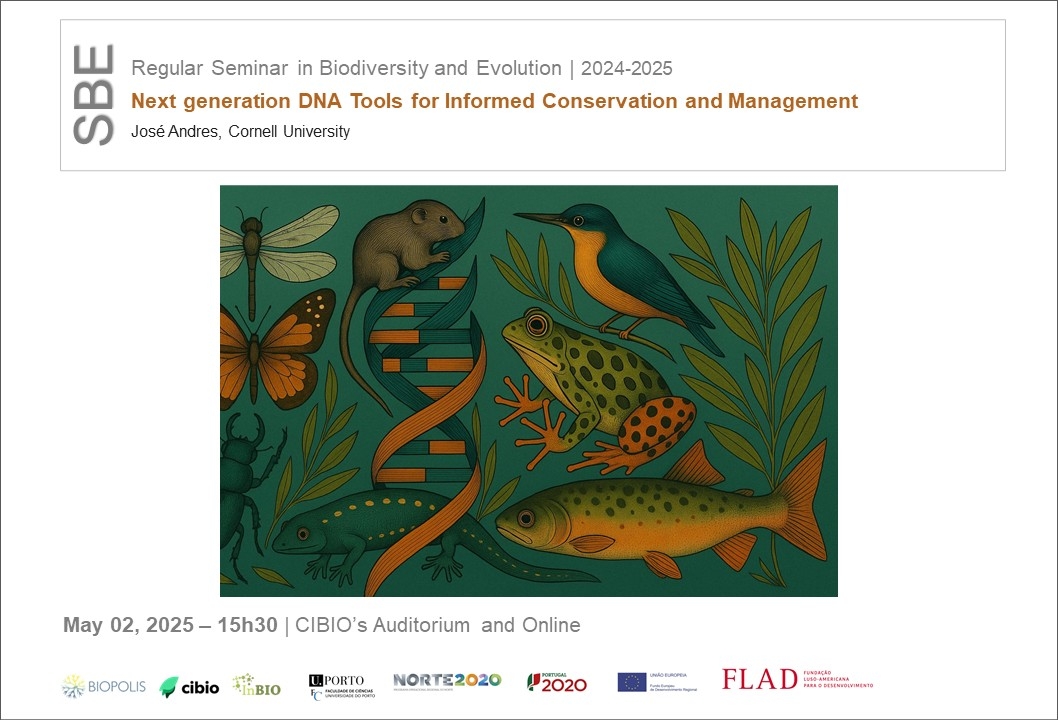Next generation DNA Tools for Informed Conservation and Management
02 May 2025 - José Andres, Cornell University | 15h30 | Hybrid Seminar

REGULAR SEMINAR IN BIODIVERSITY AND EVOLUTION
Biodiversity in Europe is in crisis: nearly 60% of European species have experienced population declines in recent decades, and over 80% of habitats within the EU are currently classified as being in poor condition. In this context of rapid global change, it is essential that we develop efficient and accurate tools to capture the spatio-temporal dynamics of biodiversity in order to inform effective management and mitigation strategies. While species richness remains the most commonly used metric for tracking biodiversity change, biodiversity itself is a complex, multidimensional construct—encompassing genetic, taxonomic, phylogenetic, and ecological components. Integrating all of these dimensions with traditional monitoring methods is logistically and technically challenging, as it requires multiple sampling approaches across a wide range of taxa and ecosystems. In this seminar, I will present research from my team demonstrating how the analysis of DNA sequences found in the environment (eDNA) offers a powerful and scalable solution for ecosystem surveillance. Our work shows how eDNA can be used to efficiently monitor biodiversity across levels of biological organization, from single genes to entire ecological communities, offering new opportunities for holistic and cost-effective ecosystem assessment in the face of accelerating environmental change.
Dr. Jose A. Andres is a Faculty Fellow at the Cornell Atkinson Center for Sustainability where he serves as the Director of the environmental DNA and Genomic Core Facilty. Dr. Andrés is also an Adjunct Associate Professor at the University of Saskatchewan (Canada). He has broad interests in ecological and conservation genomics including the development and validation of genetic technologies to inform decision-making in conservation management. Over the past few years, his work has centered on the application of cutting-edge environmental DNA (eDNA) tools to identify and track anthropogenic impacts on freshwater ecosystems, communities, and populations.
